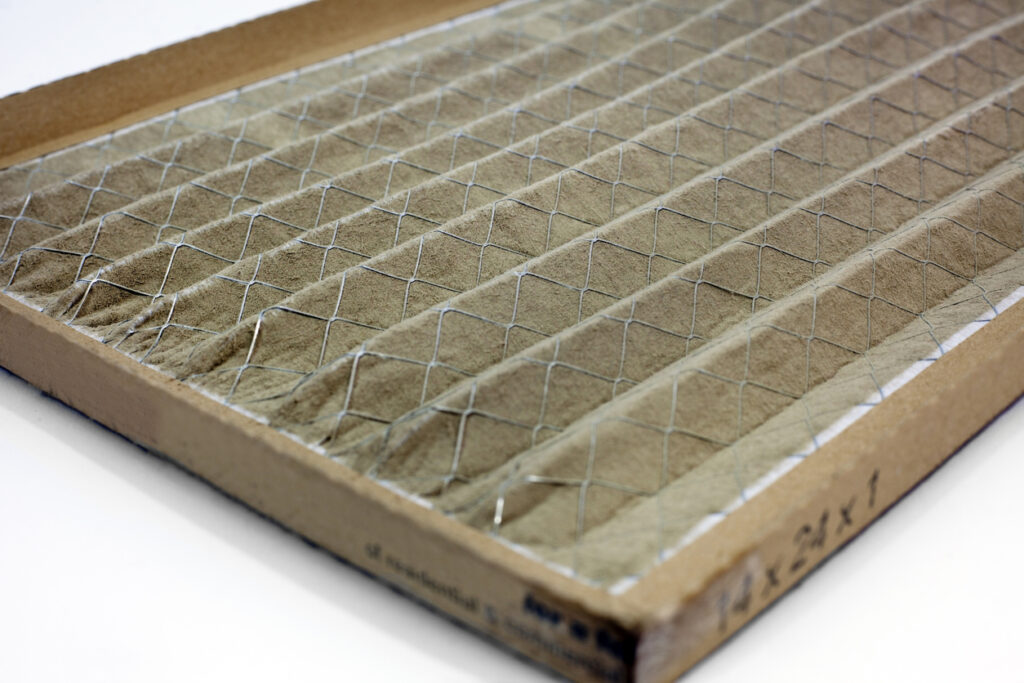When to Change Your AC Filter in Summer
Back to Blog
Your AC directly affects your level of comfort and well-being when temperatures and humidity levels spike. For that reason, it’ll require your utmost attention to keep it running optimally consistently. In addition to scheduled professional maintenance, it’s important to monitor the condition of your air filters and replace them as needed. This guide breaks down how often you should change your AC filters to maintain efficiency and air quality all season long.
How to Know It’s Time to Replace
Many experts recommend that you replace your filters when summer starts and then after every three months. For most homes, this is sufficient. However, the frequency of changing air filters is not a one-size-fits-all solution. Several variables influence the lifespan of an AC filter.
Factors Affecting the Frequency of Filter Changes
Every home and environment is unique. Where you live, how you live, and who you live with all impact how often your AC filter should be replaced. The key factors at play include:
The Filter’s Efficiency Rating
Highly-rated AC filters will do an excellent job keeping your indoor environment clean and healthy. However, this comes at a cost. Filters with higher MERV ratings (11 to 20) have tightly woven fibers, which means they clog more quickly because they trap almost all airborne particles, including microorganisms and smoke.
During summer, the general rule of thumb is to change a highly-rated filter every month. For filters rated 1-10 MERV, the three-month frequency could suffice.
Your Household Occupants
If you live by yourself and don’t have any pets, you should change your AC filters every two to three months. One person doesn’t generate that many airborne particles, so filters tend to last longer.
If you have pets, you know how much fur and dander they can shed. They also often bring in outdoor contaminants, such as dust, pollen, and mold spores, which cling to their fur when playing outside. These allergens and particles can degrade indoor air quality and clog filters even faster. If you have several people in your home, you should consider replacing your filters every 20 to 45 days.
If your household includes children, elderly individuals, or anyone with respiratory conditions, monthly filter changes are strongly recommended. These groups are more vulnerable to poor indoor air quality. For example, prolonged exposure to airborne pollutants can impair lung function and cognitive development in children, potentially leading to lifelong health and developmental problems.
AC Usage and Home Size
If you or other household occupants are always home and use the air conditioner consistently, the filters will generally get dirtier quickly. This is due to the AC always circulating air and pulling airborne particles through the filters.
In larger homes, the AC has more square footage to cool, which means greater airflow and more opportunities for contaminants to enter the system. In both scenarios, inspecting your filters every 30 to 60 days is a smart practice, even if you’re using mid-range MERV-rated filters.
Household Habits and Environment
If you enjoy burning scented candles, smoking, cooking frequently, or engaging in home improvement projects like sanding or repainting, your AC filter replacement should be frequent. These activities release fine particles, volatile organic compounds (VOCs), and other airborne contaminants that can quickly degrade your indoor air quality and clog filters.
Likewise, if your home is located near busy roads, industrial areas, or regions prone to dust storms, change the AC filter every 30 to 45 days. Outdoor pollutants will find their way into your home one way or another during the summer. You can only manage their impact on your indoor air quality.
Why Filter Changes Matter in Summer
Filter changes matter because they protect not only household occupants but also your AC system from breakdowns and premature wear. When filters become clogged, they restrict airflow, forcing your AC to work harder to draw in air for conditioning. Even then, the limited air that does pass through won’t be sufficient, potentially causing the condenser to develop ice or malfunction.
How to Change AC Filters
The first step is to consult your HVAC manual to confirm the correct filter size and type for your specific system. This is crucial. Choosing a filter with a higher MERV rating than your system can handle may restrict airflow and strain your AC, potentially causing damage before it ever improves your indoor air quality. Note that every air conditioner is designed to operate within a specific airflow range, and falling short of that can lead to reduced efficiency, frozen coils, or system failure.
Once you have identified and bought the right filter, turn off your AC, locate the filter compartment, remove the old filter, and insert the new one. Make sure it fits snugly in its slot, with the airflow arrows pointing in the correct direction.
Contact Conditioned Air, Inc. for More Information
For guidance through the filter replacement process or professional summer AC maintenance, call Conditioned Air, Inc. today. We have NATE-certified technicians and over 80 years of experience in the HVAC industry. You can trust us with your home comfort and efficiency.
Call Conditioned Air, Inc. for AC maintenance in Macon.



 Schedule Service
Schedule Service














